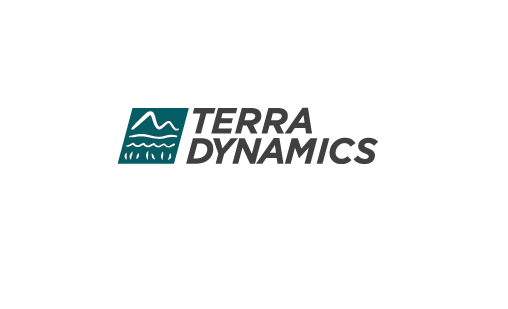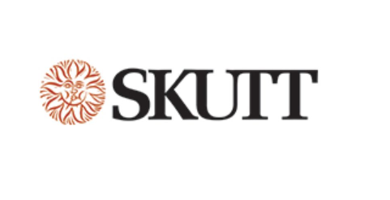Behavioral Assessment Tests: Best Practices in the Hiring Process

This article is the second in 180one’s two-part series looking at behavioral assessment testing as part of the hiring process.
In part one of our series on using behavior assessment testing in the hiring process, we looked at different types of behavioral assessment tests and how organizations are increasingly using them to help evaluate the suitability and predicted performance of high-level job candidates. (You can revisit that article here.) Following the publication of that article, we conducted a survey with 180one clients to learn if and how they are currently using behavior assessment testing. Those survey results guide part two of the series, as we look at best practices for using these tests in the hiring process and after.
Question: Does your current or past organization use any sort of personality or behavioral assessment when interviewing candidates?
Survey results: Yes – 100%
This is consistent with the latest Candidate Experience Report from Talent Board, a nonprofit that studies best hiring practices from the prospective employee’s point of view. Their 2018 analysis showed that close to 90% of organizations surveyed use assessment testing in the hiring process, and two types stood out with a significant increase in use: 1) job simulations that help assess how a candidate might perform on the job, and 2) culture fit assessments that identify how well potential new hires will assimilate into the organization.
Question: Which type/style of assessment does your organization use? (such as, Hogan, DISC Wonderlic, Myers-Briggs, etcetera)?
Survey results: All of the above are used by many of our respondents, as well as a variety of specialized and industry-specific tests. Most respondents use a paid platform for testing and results analysis, although a few noted they’ve used free online testing such as Myers-Briggs and DISC basic.
Question: For what level of candidates does your organization use the assessments?
Survey results: All employees – 20%, Managers and above – 60%, Executives – 20%
With the broad scope of test types and high rate of usage across employment levels, it’s important to keep in mind that Equal Employment Opportunity Commission guidelines state it is the responsibility of the employer to ensure that selection tests, including behavioral assessments, are reliable and valid, yielding consistent results that predict success on the job.
The Society for Human Resource Management (SHRM) emphasizes that if a company can’t clearly demonstrate reliability and validity of an assessment test, the company is vulnerable to discrimination claims. Even if you use a testing service that provides documentation supporting the validity of a test, SHRM says the specific employer still has to be able to demonstrate the test is job-related and its results appropriate for the employer’s purpose.
EEOC guidelines on testing include:
- Employers should administer tests and other selection procedures without regard to race, color, national origin, sex, religion, age (40 or older), or disability.
- Employers are responsible for ensuring that behavioral assessment tests and other selection procedures are properly validated for the positions and purposes for which they are used.
- Employers should ensure that tests and selection procedures are not adopted casually by managers who know little about these processes. No test or selection procedure should be implemented before or after hiring without an understanding of its effectiveness and limitations for the organization, its appropriateness for a specific job, and whether it can be appropriately administered and scored.
Question: At what point of the interview process are you using the assessment?
Survey results: After initial phone screen – 20%, After first interview – 40%, After second interview – 20%, Right before offer – 20%
First, it’s important to consider that the most effective hiring processes address your company’s needs, not likes, and the type and timing of assessment should support those needs. “Today you want innovation and growth to be competitive, and that can’t happen in a monolithic culture,” says Stephen Shapiro, the author of four books on workplace innovation. “You need to make sure you hire people with a broad range of styles, so instead of weeding out people that don’t fit, the recognition today is that different roles require different characteristics.”
With that in mind, there’s general consensus among recruiting firms and assessment analysts that in-depth assessment testing occur mid-process – after an initial screening and the first or second interview. And testing at this stage tests can yield valuable information that can reshape a job or even re-think a department.
Assessment and talent acquisition company PSI Select International points out that a company can also create a streamlined and in-depth interview structure that can serve as a supporting behavioral assessment tool in the hiring process. Creating a behavior-driven list of questions asked of all candidates gives the hiring manager a level playing field for assessing them, allowing better determination of the motivational fit of each candidate, and avoiding common interview bias pitfalls. (We’ve got a series on interview bias on our “Water Cooler” blog.)
Question: Are the results of the assessment used as a sole determination of Interview/No Interview, or Hire/No Hire decisions?
Survey results: Yes – 10%, No – 90%
Not using an assessment test as the only determination for making a decision about a candidate is consistent with the recommendations of most behavioral and occupational assessment companies. Carol Buckner, a director with assessment firm Birkman International, has found that companies using behavioral assessments need to give more attention to implementing a policy around the specific use of these tests in the selection process.
Buckner outlines four major points to keep in mind when using behavioral assessments during the hiring process:
- Use assessment results as one piece of the puzzle, giving it no more or less weight than the interview, past experience, or resumé.
- Use assessments in a consistent manner. One suggestion is to have all finalists for a position complete the assessment prior to a follow-up interview. Never selectively choose to give an assessment to only one of the three final candidates, as this creates bias.
- Never specifically reference the assessment results with candidates. Do use the results to develop behavioral questions you can ask in the follow-up interview in order to gain more knowledge about potential hires.
- Never make a hiring decision based solely on an assessment result.
Question: Why does your organization use assessments?
Survey results: Hiring/prescreening – 20%, Understanding team dynamics – 20%, Both – 60%
To get the greatest return on investment in assessments, Birkman International’s approach to designing and administering behavioral tests is the belief that high-performing employees need 1) passion to feel satisfied and motivated, 2) technical skills to accomplish tasks, and 3) a high degree of self and others awareness to navigate interpersonal dynamics.
A high-performing hire will continue to have these needs, and some behavior assessment testing analysts have determined that there is a greater ROI when using these tests after hiring to determine key motivators, to develop situationally appropriate benchmarks for success, and to build diverse, high-performing work teams.
The Society for Human Resource Management finds that although there’s not a simple measure of performance effectiveness for groups, there is a general understanding of what makes an effective group work: talent, skills, shared purpose and goals, performance ethics, incentives and motivation, effectiveness, leadership, conflict, communication, power and empowerment, and norms and standards. Utilizing an assessment tool will help you identify behavioral traits unique to each person that also support a successful team.
The Future of Behavior Assessments
The upward trend in the use of behavior assessment testing underscores that there’s not one “right profile” that guarantees success in a particular job or within an organization. And the range of test options continues to grow – in addition to the most well-known behavior assessments tests and administrators we looked at in part one of this series, SHRM alone lists almost 80 additional industry- and goals-specific organizations offering assessment tools and consulting.
If your organization is ever interested in gaining more insight into behavioral assessments and if / how they should be included in the hiring process, 180one will be a great resource for you. Whether we advise you directly or get you connected somewhere within our broad network, we are always happy to help you and your organization conquer your goals.





